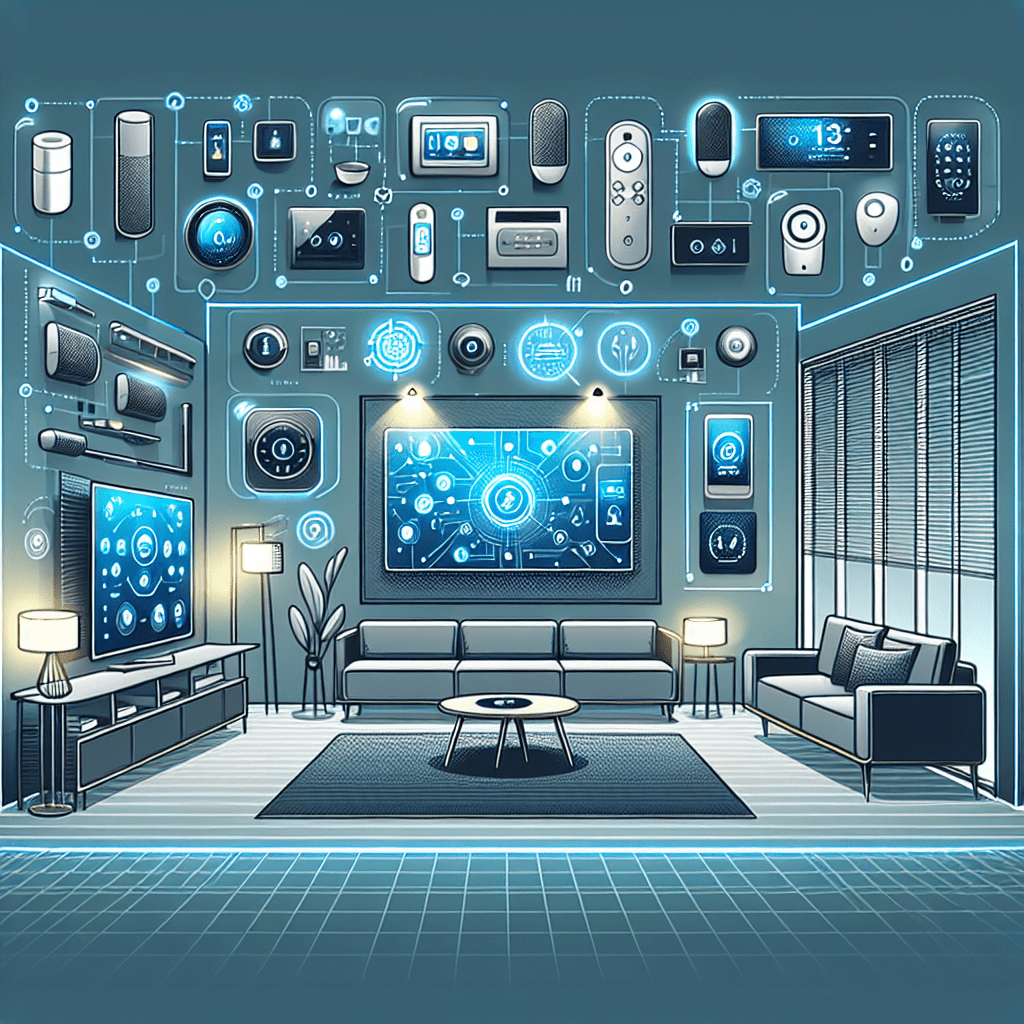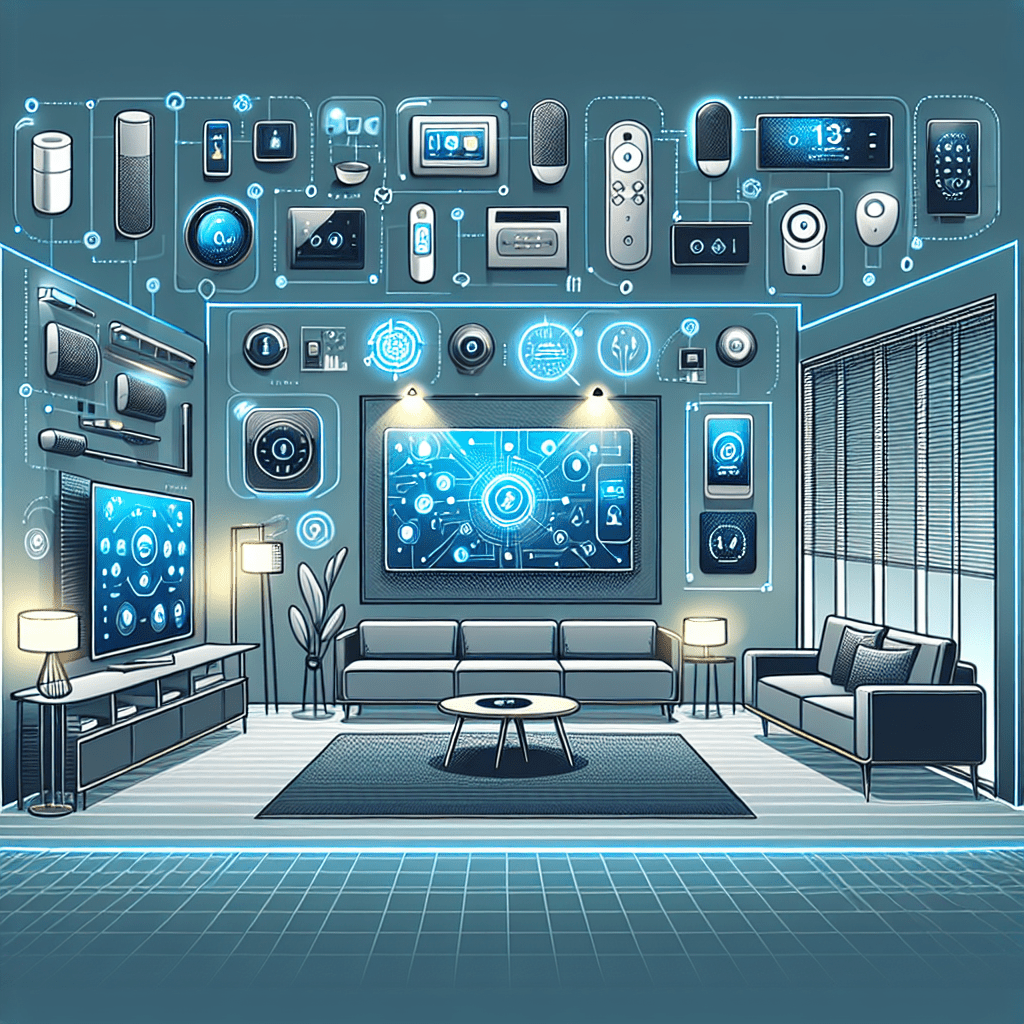Imagine transforming your home into a personal assistant that anticipates your needs, ensures your comfort, and provides an unprecedented level of convenience. This is the promise of smart home technology, a rapidly growing trend that intertwines with the very essence of modern living. In “Is Smart Home Technology Worth the Investment?”, you’ll explore the ins and outs of upgrading your living space with innovative devices designed to streamline your daily routine. Whether it’s the allure of energy savings, heightened security, or the sheer novelty of commanding your domain with a simple voice command, this article aims to shed light on the benefits and considerations that come with embracing a smarter home, helping you make an informed decision about whether it’s a wise financial move for your lifestyle.

Understanding Smart Home Technology
Definition and Components of Smart Homes
Smart home technology refers to a system of interconnected devices working together to make your home more efficient, convenient, and secure. These components can include anything from smart thermostats, lighting, and security systems, to appliances like refrigerators and washing machines that you can control remotely. The quintessential element making all this possible is the Internet of Things (IoT), which allows devices to communicate with each other and with you, typically through a smartphone app or a central smart home hub.
Evolution of Home Automation
You may be surprised to learn that the concept of home automation is not new. It’s been evolving since the late 20th century with the advent of basic labor-saving machines. Over the years, advancements in technology have streamlined these systems, leading to today’s voice-activated, AI-integrated smart gadgets. The evolution of home automation has transitioned from luxury options for the tech-savvy to accessible tools for the general population.
Common Smart Home Features and Devices
Probably the most familiar smart home features include devices such as smart speakers and assistants, which let you control your home environment with voice commands. Smart locks and doorbells enhance your home security by letting you see who’s at your door even when you’re not home. Smart lighting systems offer both convenience and ambience, allowing you to adjust brightness and color with just a tap on your smartphone. These are just a few examples of the smart devices that can make daily life a little smoother.
Cost Analysis of Smart Home Investment
Initial Costs: Hardware and Installation
When considering smart home technology, the first thing that may come to mind is the upfront cost. Purchasing hardware and, if you’re not DIY inclined, paying for professional installation can add up quickly. However, the cost greatly varies depending on the brand, quality, and the range of functionality you’re seeking. Some starter kits can be quite affordable, while a full-blown, high-end system may require a significant investment.
Recurring Costs: Subscriptions and Updates
Some smart home devices come with recurring costs, such as monthly subscriptions for cloud storage or premium services that unlock additional features. Additionally, keeping the devices up-to-date with the latest software may also incur costs if updates are not provided for free by the manufacturer.
Long-Term Savings: Energy Efficiency and Resale Value
The flip side of these expenses is the potential for long-term savings. Smart thermostats can optimize heating and cooling to reduce energy bills, and smart lighting can automatically turn off to save electricity. Moreover, investing in smart tech can increase the resale value of your home and attract buyers who value such conveniences.
The Convenience Factor
Remote Access and Control of Home Devices
One of the great perks of smart home technology is the ability to access and control your devices no matter where you are. Forgot to lock the front door or turn off the lights? No problem. With just a few clicks on your phone, you can secure your home and even receive alerts if something is amiss.
Automation of Daily Tasks
Smart devices can handle daily tasks automatically. Imagine waking up to a freshly brewed coffee or coming home to a pre-heated oven. Smart home devices can schedule and perform tasks, giving you one less thing to worry about during your busy day.
Enhanced Comfort and Customization
Your living space can also adapt to your personal preferences over time, thanks to smart home technology. With devices that learn and adjust to your habits, your home can become more comfortable and tailored to your lifestyle, from lighting that adjusts to your mood to music that follows you from room to room.
Impact on Home Safety and Security
Smart Alarms and Surveillance Systems
Smart technology significantly boosts home safety with alarms that can detect smoke, carbon monoxide, or even water leaks. Surveillance systems have also progressed, with high-definition cameras and motion sensors offering real-time monitoring through your smartphone.
Remote Monitoring Capabilities
You can keep an eye on your home while you’re away, thanks to the remote monitoring capabilities of smart devices. Receive alerts, check camera feeds, and even communicate with visitors or pets from afar.
Potential Risks and How to Mitigate Them
However, with increasing connectivity comes the risk of cyber attacks. It’s essential to secure your home network, use strong passwords, and ensure that you regularly update your devices’ software to patch any vulnerabilities. Taking these steps can help keep your digital fortress as secure as its physical counterpart.

Smart Home Technology and Energy Efficiency
Smart Thermostats and Energy Management
Smart thermostats can make a significant dent in your energy bill by learning your schedule and adjusting temperatures accordingly. They can detect when you’re not home and enter energy-saving modes, ensuring you’re not paying to heat or cool an empty house.
Reducing Carbon Footprint with Intelligent Systems
Smart homes are not just about personal convenience; they also play a role in the larger picture of sustainability. By optimizing energy usage, intelligent systems help reduce the overall carbon footprint of your household, contributing to a healthier planet.
Monitoring and Managing Resource Consumption
Detailed reports generated by smart home systems can be eye-opening. They allow you to monitor your daily, weekly, and monthly resource consumption, providing insights into where you can cut back and further improve efficiency.
Integration with Renewable Energy Sources
Pairing with Solar Panels and Battery Systems
Your smart home system can integrate seamlessly with renewable energy sources like solar panels. Excess energy can be stored in battery systems for later use, maximizing the benefits of your investment in renewables.
Managing Energy Flow and Storage
Smart technology can also help manage the flow and storage of energy, deciding when to draw power from the grid or use your stored energy based on peak and off-peak rates, further cutting down on costs.
Optimizing Usage for Maximum Savings
By optimizing usage and storage, you can potentially achieve maximum savings on your energy expenses. Smart systems can even sell back excess power to the grid, creating a potential income stream or credit toward your utility bills.
Maintenance and Upgrades
Keeping Technology Up-to-Date
Staying abreast of the latest technology updates ensures that your smart home remains efficient and secure. While this might mean recurring costs as mentioned earlier, the benefits of new features and improved performance can often outweigh these.
Dealing with Obsolescence
Technology moves fast, and smart home devices are no exception. At some point, you may face the reality of obsolescence. Planning for this eventuality by choosing modular and upgradable systems can save you from having to overhaul your entire setup down the line.
The Cost of Technical Support and Repairs
Even the most reliable systems may require technical support and repairs occasionally. While warranties may cover some issues, other repairs or out-of-warranty service calls can add to the total cost of ownership.
Impact on Property Value and Marketability
Enhancing Resale Value with Smart Features
Smart home features are increasingly in demand, and homes equipped with these technologies tend to have a higher resale value. The modern homebuyer often looks for these conveniences, willing to pay a premium for a house that’s move-in ready with smart technology in place.
Attractiveness to Tech-Savvy Buyers
A tech-savvy buyer will likely be attracted to a home with a fully integrated smart system. As younger generations enter the housing market, the desire for connected homes is expected to increase, making this an attractive feature for future resale.
Considerations for Future-Proofing
When you’re adding smart features to your home, it’s wise to consider how they will stand the test of time. Opt for technologies that have a track record of updates and support, and think about how they will integrate with future devices and standards.
Smart Home Technology and Lifestyle Enhancements
Entertainment and Multimedia Integration
The way you experience entertainment can be transformed with a smart home, integrating multimedia across devices and rooms effortlessly. From streaming music to multi-room audio and video, smart homes can elevate your entertainment experience to new heights.
Health and Well-being Features
Smart home technology also offers features that promote health and well-being, like air quality monitors and sleep trackers. With these devices, you can create an environment that supports a healthy lifestyle.
Accessibility for Elderly or Disabled Individuals
For the elderly or those with disabilities, smart homes can be incredibly empowering. Automated systems can assist with tasks that might otherwise be difficult or dangerous, providing a measure of independence and improving quality of life.
Making the Decision: Is It Worth the Investment?
Weighing Pros and Cons
Deciding whether to invest in smart home technology will require you to weigh the pros and cons carefully. Consider the costs, both initial and ongoing, against the convenience, energy savings, safety, and the potential resale value it adds to your home.
Personal Lifestyle Considerations
Your lifestyle and how much you value the conveniences offered by smart technology play a crucial role. If the idea of a connected, efficient, and responsive home excites you, then smart home technology is likely a worthwhile investment.
Return on Investment Calculations
Finally, consider the return on investment. If the smart home features you choose save you enough in energy costs, increase your home’s value, and grant you peace of mind, these benefits could very well justify the expenditure. Calculate your potential savings and compare them against the cost to determine if smart home technology is a sound investment for you. Your smart home could be not just a modern convenience, but a financial asset in the long run.



